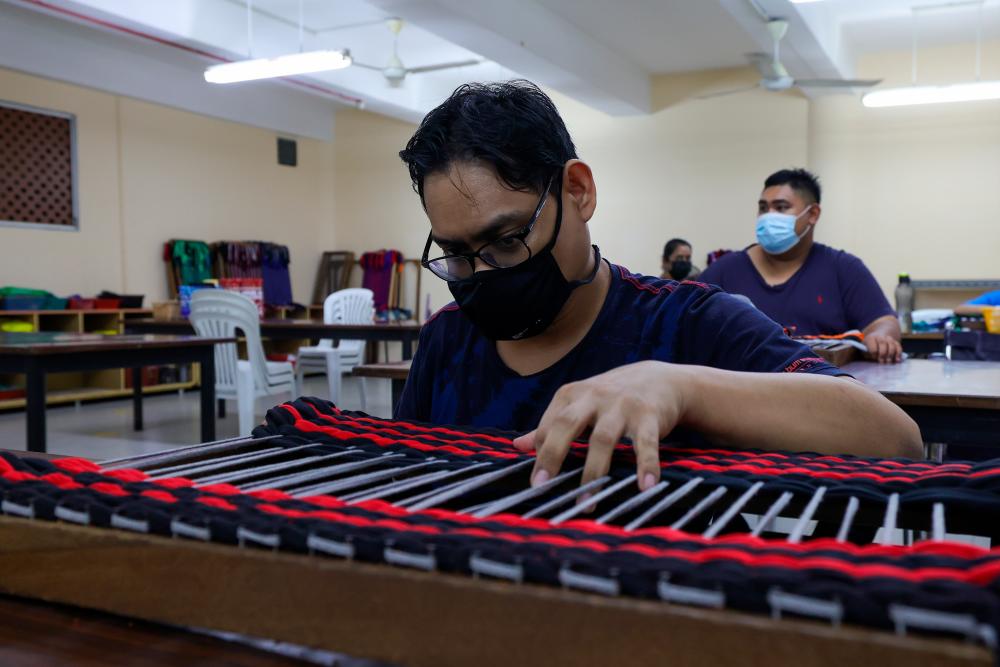JOHOR BAHRU: The Johor Association of Cerebral Palsy (CPJ) vocational workshop here, helps young people with disabilities (PwD) to earn an income by offering job opportunities and teaching them skills to produce handicraft products.
Abdul Rahman Mohd Arshad, 42, one of 16 cerebral palsy people (with impaired muscle coordination) working at the workshop, said his skills and experience of over 20 years here has enabled him to adept to producing woven fabric footwear and can produce about 14 pairs a month.
Despite the skills he has honed, Abdul Rahman who is the second of three siblings, has difficulty walking as he tires out easily, but he harbours an ambition to run his own business.
“Making these woven shoes is no easy feat because it requires patience and concentration, but in a week I can make two or three pairs and I used to churn out about 14 pairs a month.
“To sell (the shoes) on my own is difficult, as I am a little weak at marketing and also to know where to source for raw material, but I also have a desire (to open a business),” he said in an interview with Bernama recently.
S. Philomina, 34, who has been working here for the past seven years, said the workshop has opened up a new vista for her to gain new knowledge and experience, besides helping her to be more independent.
“I have acquired a lot of knowledge, learning to make handicraft, I know how to grow mushrooms and so on. There is also a desire to open a business such as handicraft, I hope that my dream will come true one day,” she said.
Meanwhile, CPJ vocational workshop Supervisor Halimah Mohd Sohod said so far, a total of 16 cerebral palsy PwD aged 22 and above from around the city have worked at the workshop run by the Johor Cerebral Palsy Association.
She said the PwDs produce various handicraft products such as woven footwear, bags made from recycled material, rosaries, bookmarks and the latest being a mushroom culture planting project in collaboration with the Iskandar Regional Development Authority (IRDA).
“Most of them receive education at the Johor Cerebral Palsy Special Education School and when they reach the age of 20 and above, they are admitted to this (workshop) based on their skills and ability to work.
“Here, they are called apprentices and work according to their skills and interests and are given an allowance from the association, besides getting a disabled worker’s allowance (EPC),” she said.
Halimah, who has served for 32 years at the workshop, said they would however, have to undergo a trial period of three months first and would be admitted after mastering the skills learned.
She said they all show great enthusiasm for work, although all have their own limitations and sometimes need a hand.
“Most of them are independent, we only need to monitor them when they are given tasks, you couldn’t say they can work entirely on their own, they still need a little help.
“They are experts in weaving for footwear, but cutting the fabric is a bit difficult. Due to the lack of coordination in the hands, only two or three of them can cut the cloth,” she said.-Bernama













